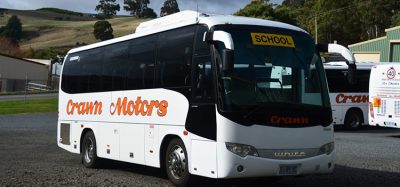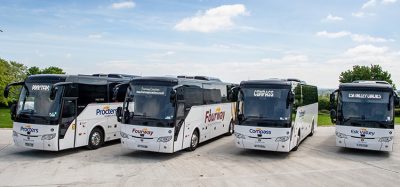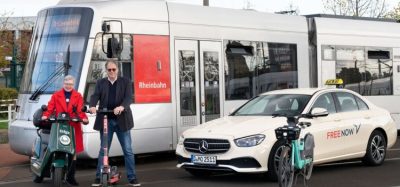New shared mobility network shares 2030 goals to reduce private car usage
- Like
- Digg
- Del
- Tumblr
- VKontakte
- Buffer
- Love This
- Odnoklassniki
- Meneame
- Blogger
- Amazon
- Yahoo Mail
- Gmail
- AOL
- Newsvine
- HackerNews
- Evernote
- MySpace
- Mail.ru
- Viadeo
- Line
- Comments
- Yummly
- SMS
- Viber
- Telegram
- Subscribe
- Skype
- Facebook Messenger
- Kakao
- LiveJournal
- Yammer
- Edgar
- Fintel
- Mix
- Instapaper
- Copy Link
Posted: 17 May 2022 | Intelligent Transport | No comments yet
The Shared Mobility 2030 Action Agenda and Action Network will bring about more accessible and affordable mobility options, in order to make shared mobility the first choice over private car use.


Credit: Shared-Use Mobility Center
On 17 May 2022, at the 2022 National Shared Mobility Summit in Chicago, some 50 public, private, and non-profit organisations announced a major initiative to develop and advance the Shared Mobility Action Agenda so that equitable, low-carbon shared mobility will be more affordable, easier to use and even more accessible than driving a car by 2030.
“The gas price spike has, again, made many of us painfully aware of our over-reliance on cars. While electrification is necessary, it’s not enough to solve our systemic mobility problems,” said Benjamin de la Peña, CEO of the Shared-Use Mobility Center. “The Agenda and Action Network intend to make shared mobility the first and best option over car ownership within the decade. We need to do this to fight climate change, make mobility more equitable and to help households save money. This isn’t just another sign-on document. We’ve developed a to-do list to actually get it done.”
With low-income households spending almost 40 per cent of their income on transportation, this initiative will be key in reducing this, and is a pivotal moment for the future of transportation. The latest research shows that it is crucial to take immediate action on the climate crisis. It also shows that the number of people killed by drivers nationwide, while simply walking, has increased by almost 50 per cent over the last decade, with more of the victims being older adults and people of colour.
“Shared mobility strategies can deliver on the promise of safer roads, more equitable transportation and the sustainable movement of people and goods – if done right. That’s why we’re here,” said Marla Westervelt, VP of policy at Coalition for Reimagined Mobility. “Coming together with an influential network of public, private and community advocates, we can collaborate and act to shape the transportation of tomorrow and address the current global energy security and climate crises.”
Over 50 public, private and non-profit organisations have already committed to advancing the agenda, which supports all shared transportation options, including public transport, ride-hailing, car-sharing, on-demand responsive micro-transit, shared bikes and scooters and paratransit. In advance of the release of version 1.0 of the agenda in late Summer 2022, the agenda’s immediate goal is to continue to grow the number of participating organisations and gain even more momentum.
The International Energy Association finds that having more shared rides and using more public transportation and micro-mobility options can reduce global oil consumption by as much as 800,000 barrels per day, which is nearly 300 million barrels per year, saving money and reducing harmful air pollutants.
Moving to shared mobility will also mean that communities can stop ceding valuable property to car parks and can instead add to existing maintenance deficits on miles and miles of land currently dedicated to moving and accommodating cars. The agenda aims to maximise the benefits of shared mobility, in order to make it more convenient than driving a car.
Related topics
Air Quality, Mobility Services, On-Demand Transport, Passenger Experience, Public Transport, Sustainable Urban Transport
Related modes
Bikes & Scooters, Bus & Coach, Ride-sharing & Car-sharing
Related cities
Chicago
Related countries
United States
Related organisations
Coalition for Reimagined Mobility, Shared-Use Mobility Center
Related people
Benjamin de la Peña, Marla Westervelt







